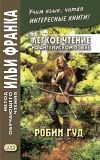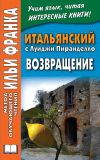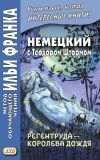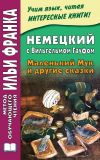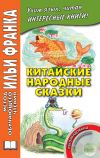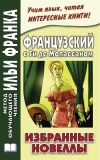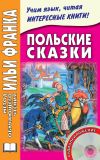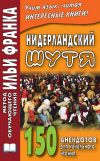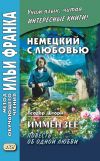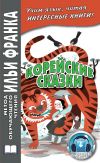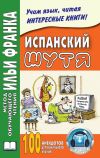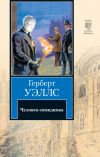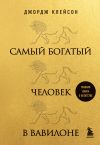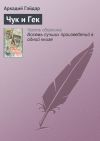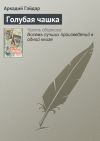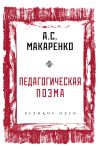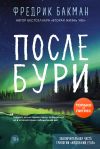Текст книги "Английская коллекция. Уильям Батлер Йейтс. Рассказы о Рыжем Ханрахане / W. B. Yeats. Stories of Red Hanrahan"
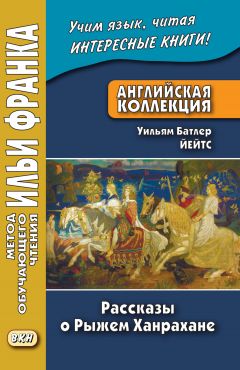
Автор книги: Уильям Йейтс
Жанр: Иностранные языки, Наука и Образование
Возрастные ограничения: +16
сообщить о неприемлемом содержимом
Текущая страница: 5 (всего у книги 9 страниц)
Hanrahan and Cathleen the daughter of Hoolihan
(Ханрахан и Кэтлин, дочь Хулихана)
It was travelling northward Hanrahan was one time (однажды Ханрахан брел на север; to travel – путешествовать; передвигаться, перемещаться), giving a hand to a farmer now and again in the hurried time of the year (время от времени помогая какому-нибудь фермеру в это страдное: «торопливое» время года; now and again – время от времени), and telling his stories and making his share of songs at wakes and at weddings (рассказывая свои истории и внося свою лепту песнями на поминках и свадьбах; share – доля, часть; wake – бодрствование; всенощная, вигилия; пост накануне праздника; поминки /перед погребением/).
He chanced one day to overtake on the road to Collooney one Margaret Rooney (случилось ему однажды догнать по дороге в Кулуни некую Маргарет Руни; one – один, единственный; некий), a woman he used to know in Munster when he was a young man (женщину, которую он знавал в Манстере, когда был еще молодым парнем). She had no good name at that time (в те времена она не имела доброй славы = за ней водилась дурная слава), and it was the priest routed her out of the place at last (и в конце концов священник вытурил ее из деревни; to route – обращать в беспорядочное бегство; выселять, выгонять; place – место; местечко, населенный пункт). He knew her by her walk and by the colour of her eyes (он узнал ее по походке и по цвету глаз), and by a way she had of putting back the hair off her face with her left hand (и по привычке откидывать назад волосы с лица левой рукой; way /зд./ – особенность, характерная черта).
farmer ['fɑ:mǝ], chance [tʃɑ:ns], rout [raʋt]
It was travelling northward Hanrahan was one time, giving a hand to a farmer now and again in the hurried time of the year, and telling his stories and making his share of songs at wakes and at weddings.
He chanced one day to overtake on the road to Collooney one Margaret Rooney, a woman he used to know in Munster when he was a young man. She had no good name at that time, and it was the priest routed her out of the place at last. He knew her by her walk and by the colour of her eyes, and by a way she had of putting back the hair off her face with her left hand.
She had been wandering about, she said, selling herrings and the like (она бродит по окрестностям, как она сказала, продавая селедку и тому подобное), and now she was going back to Sligo, to the place in the Burrough (и теперь возвращается назад в Слайго, в ту деревеньку в Бэрроу; Sligo – графство в Ирландии) where she was living with another woman, Mary Gillis (где она живет с другой женщиной, Мэри Гиллис), who had much the same story as herself (у которой почти такая же история, как и у нее самой; much the same – почти такой же, похожий). She would be well pleased, she said (она была бы очень рада, как она сказала), if he would come and stop in the house with them (если бы он пришел и остановился у них в доме: «в доме с ними»), and be singing his songs to the bacachs and blind men and fiddlers of the Burrough (и пел бы свои песни для хромых, слепых и скрипачей из Бэрроу; bacach /ирл./ – хромой).
herring ['herɪŋ], Burrough ['bʌrǝ], blind [blaɪnd]
She had been wandering about, she said, selling herrings and the like, and now she was going back to Sligo, to the place in the Burrough where she was living with another woman, Mary Gillis, who had much the same story as herself. She would be well pleased, she said, if he would come and stop in the house with them, and be singing his songs to the bacachs and blind men and fiddlers of the Burrough.
She remembered him well, she said, and had a wish for him (она хорошо помнит его, она сказала, и испытывает к нему страсть); and as to Mary Gillis, she had some of his songs off by heart (а что до Мэри Гиллис, так она выучила наизусть некоторые из его песен; to have off – выучить наизусть; by heart – наизусть, на память), so he need not be afraid of not getting good treatment (так что ему не нужно бояться, что с ним будут скверно обращаться: «что он не получит хорошего обращения»), and all the bacachs and poor men that heard him (а все хромые и нищие: «бедные», которые слышали о нем) would give him a share of their own earnings for his stories and his songs (будут давать ему долю из своих заработков за его истории и песни) while he was with them (покуда он будет находиться с ними), and would carry his name into all the parishes of Ireland (и разнесут его славу по всем церковным приходам Ирландии).
He was glad enough to go with her (он был очень рад пойти с ней; enough – достаточно; весьма /усил./), and to find a woman to be listening to the story of his troubles and to be comforting him (и найти женщину, которая выслушает историю о его злоключениях и утешит его; trouble – беспокойство, волнение; неприятность, беда).
treatment ['tri:tmǝnt], earnings ['ɜ:nɪŋz], trouble ['trʌbl]
She remembered him well, she said, and had a wish for him; and as to Mary Gillis, she had some of his songs off by heart, so he need not be afraid of not getting good treatment, and all the bacachs and poor men that heard him would give him a share of their own earnings for his stories and his songs while he was with them, and would carry his name into all the parishes of Ireland.
He was glad enough to go with her, and to find a woman to be listening to the story of his troubles and to be comforting him.
It was at the moment of the fall of day (это было в тот закатный час; moment – миг, мгновение; определенный момент; fall of day – закат) when every man may pass as handsome and every woman as comely (когда каждый мужчина может сойти за красавца, а каждая женщина – за прелестницу;to pass – проходить, проезжать; сойти /за кого-л./; handsome – уместный /арх./; красивый, статный /о мужчине/; comely – миловидный, хорошенький). She put her arm about him (она обвила его рукой: «положила свою руку вокруг него») when he told her of the misfortune of the Twisting of the Rope (когда он рассказал ей о неудаче с «Плетением веревки»), and in the half light she looked as well as another (и в сумерках она выглядела так же хорошо, как и любая другая; half light – смутный, неясный свет).
They kept in talk all the way to the Burrough (они продолжали болтать всю дорогу до Бэрроу), and as for Mary Gillis, when she saw him and heard who he was (а что до Мэри Гиллис, то, когда она увидела его и услышала = узнала, кто он такой), she went near crying to think of having a man with so great a name in the house (она чуть не расплакалась, как представила, что будет принимать человека с таким великим именем в /своем/ доме; near – близко, недалеко; почти, чуть не).
fall [fɔ:l], misfortune [mɪs'fɔ:tʃ(ǝ)n], half [hɑ:f]
It was at the moment of the fall of day when every man may pass as handsome and every woman as comely. She put her arm about him when he told her of the misfortune of the Twisting of the Rope, and in the half light she looked as well as another.
They kept in talk all the way to the Burrough, and as for Mary Gillis, when she saw him and heard who he was, she went near crying to think of having a man with so great a name in the house.
Hanrahan was well pleased to settle down with them for a while (Ханрахан был очень рад поселиться у них на некоторое время), for he was tired with wandering (потому что он устал от скитаний); and since the day he found the little cabin fallen in (ведь с того дня, как он обнаружил маленькую лачугу порушенной; to fall in – рушиться, гибнуть), and Mary Lavelle gone from it, and the thatch scattered (и что Мэри Лэвелл ушла от него, а солома с крыши разбросана; thatch – соломенная/тростниковая крыша), he had never asked to have any place of his own (он больше никогда не помышлял: «не просил» о том, чтобы иметь свой собственный дом; to ask – спрашивать; просить; place /зд./ – дом, жилище); and he had never stopped long enough in any place (и он никогда не останавливался в каком-либо месте настолько долго) to see the green leaves come (чтобы увидеть, как появляются зеленые листья там) where he had seen the old leaves wither (где до этого он видел, как блекнут старые листья), or to see the wheat harvested where he had seen it sown (или чтобы увидеть, как жнут пшеницу там, где он видел, как ее сеют; to sow).
tired ['taɪǝd], since [sɪns], wither ['wɪðǝ]
Hanrahan was well pleased to settle down with them for a while, for he was tired with wandering; and since the day he found the little cabin fallen in, and Mary Lavelle gone from it, and the thatch scattered, he had never asked to have any place of his own; and he had never stopped long enough in any place to see the green leaves come where he had seen the old leaves wither, or to see the wheat harvested where he had seen it sown.
It was a good change to him to have shelter from the wet (для него это стало переменой к лучшему – иметь убежище от дождя; change – перемена, изменение; wet – влажность, сырость; дождливая погода), and a fire in the evening time (и огонь в вечернее время), and his share of food put on the table without the asking (и свою порцию пищи, которую ставили на стол, и не нужно было об этом просить: «которую ставили на стол без спрашивания»).
He made a good many of his songs while he was living there (он сочинил многие из своих песен, пока жил там), so well cared for and so quiet (в такой безмятежности, и когда о нем так хорошо заботились; quiet – спокойный, тихий). The most of them were love songs, but some were songs of repentance (большую часть из них составляли любовные песни, но некоторые были песнями покаяния), and some were songs about Ireland and her griefs (некоторые – песнями об Ирландии и о ее горестях), under one name or another (то под одним названием, то под другим).
share [ʃeǝ], repentance [rɪ'pentǝns], grief [ɡri:f]
It was a good change to him to have shelter from the wet, and a fire in the evening time, and his share of food put on the table without the asking.
He made a good many of his songs while he was living there, so well cared for and so quiet, The most of them were love songs, but some were songs of repentance, and some were songs about Ireland and her griefs, under one name or another.
Every evening the bacachs and beggars and blind men and fiddlers would gather into the house (каждый вечер хромые, нищие, слепые и скрипачи собирались в доме; beggar – попрошайка; нищий) and listen to his songs and his poems (и слушали его песни, его стихи), and his stories about the old time of the Fianna (и его истории о давних временах Фианны; Fianna – легендарный отряд ирландских воинов, знаменитых своими героическими подвигами), and they kept them in their memories that were never spoiled with books (и они хранили их в своей памяти, которая никогда не была испорчена книгами); and so they brought his name to every wake and wedding and pattern in the whole of Connaught (и таким образом они разносили его имя по всем поминкам, свадьбам и храмовым праздникам по всему Конноту; pattern – образец, модель; день храмового святого/ирл./). He was never so well off or made so much of as he was at that time (никогда ему не было так привольно, и /никогда/ с ним не носились так, как в то время; well off – в благоприятных условиях; to make much of smb. – уделять большое внимание кому-л.).
bacach ['bækǝh], Connaught ['kɒnɔ:t], much [mʌtʃ]
Every evening the bacachs and beggars and blind men and fiddlers would gather into the house and listen to his songs and his poems, and his stories about the old time of the Fianna, and they kept them in their memories that were never spoiled with books; and so they brought his name to every wake and wedding and pattern in the whole of Connaught. He was never so well off or made so much of as he was at that time.
One evening of December he was singing a little song (одним декабрьским вечером он пел песенку: «маленькую песню») that he said he had heard from the green plover of the mountain (которую, как он говорил, он услышал от зеленой горной ржанки), about the fair-haired boys that had left Limerick (о светловолосых парнях, которые оставили Лимерик; to leave), and that were wandering and going astray in all parts of the world (и которые скитались и блуждали по всем уголкам: «частям» мира; to go astray – заблудиться, сбиться с пути). There were a good many people in the room that night (тем вечером в комнате было очень много народу), and two or three little lads that had crept in (и несколько малышей: «двое или трое маленьких парней», которые прокрались внутрь; to creep – ползать, ползти; прокрадываться), and sat on the floor near the fire (и сидели на полу подле огня), and were too busy with the roasting of a potato in the ashes or some such thing (и были слишком заняты запеканием: «жареньем» картошки в золе или чем-то еще в этом роде: «каким-то таким делом»; thing /зд./ – дело) to take much notice of him (чтобы обращать особое внимание на него);
plover ['plʌvǝ], astray [ǝ'streɪ], potato [pǝ'teɪtəʋ]
One evening of December he was singing a little song that he said he had heard from the green plover of the mountain, about the fair-haired boys that had left Limerick, and that were wandering and going astray in all parts of the world. There were a good many people in the room that night, and two or three little lads that had crept in, and sat on the floor near the fire, and were too busy with the roasting of a potato in the ashes or some such thing to take much notice of him;
but they remembered long afterwards when his name had gone up, the sound of his voice (но много лет спустя они вспомнили, когда его имя уже прославилось, звук его голоса; long – долго; долгое время спустя; afterwards – впоследствии, позже; to go up – подниматься /на гору/; подняться в цене), and what way he had moved his hand (и его манеру размахивать рукой), and the look of him as he sat on the edge of the bed (и как он выглядел, когда сидел на краю кровати; look – взгляд; вид, наружность), with his shadow falling on the whitewashed wall behind him (а его тень падала на побеленную стену позади него), and as he moved going up as high as the thatch (и как он двигался, возвышаясь до самой кровли: «поднимаясь так высоко, как кровля»). And they knew then that they had looked upon a king of the poets of the Gael (и тогда они поняли, что им /довелось/ смотреть на короля гэльских поэтов), and a maker of the dreams of men (и творца людских мечтаний; dream – сновидение, греза; мечта).
afterwards ['ɑ:ftǝwǝdz], whitewashed ['waɪtwɒʃt], thatch [θætʃ]
but they remembered long afterwards when his name had gone up, the sound of his voice, and what way he had moved his hand, and the look of him as he sat on the edge of the bed, with his shadow falling on the whitewashed wall behind him, and as he moved going up as high as the thatch. And they knew then that they had looked upon a king of the poets of the Gael, and a maker of the dreams of men.
Of a sudden his singing stopped, and his eyes grew misty (вдруг его пение прекратилось, а глаза затуманились: «стали туманными»; of a sudden – внезапно) as if he was looking at some far thing (как будто он смотрел на какой-то далекой предмет).
Mary Gillis was pouring whiskey into a mug (Мэри Гиллис наливала виски в кружку) that stood on a table beside him (которая стояла на столе рядом с ним), and she left off pouring and said (и она перестала наливать и сказала; to leave off – переставать делать /что-л./), “Is it of leaving us you are thinking (не о том ли, чтоб покинуть нас, ты сейчас раздумываешь)?”
Margaret Rooney heard what she said, and did not know why she said it (Маргарет Руни слышала, что она сказала, но не понимала, почему она сказала это), and she took the words too much in earnest and came over to him (и, восприняв эти слова слишком серьезно, подошла к нему), and there was dread in her heart (а в ее сердце был страх) that she was going to lose so wonderful a poet and so good a comrade (что она потеряет такого чудесного поэта и такого хорошего товарища), and a man that was thought so much of (и мужчину, о котором она так много думала), and that brought so many to her house (и который принес так много /всего/ в ее дом).
pour [pɔ:], earnest ['ɜ:nɪst], wonderful ['wʌndǝfl]
Of a sudden his singing stopped, and his eyes grew misty as if he was looking at some far thing.
Mary Gillis was pouring whiskey into a mug that stood on a table beside him, and she left off pouring and said, “Is it of leaving us you are thinking?”
Margaret Rooney heard what she said, and did not know why she said it, and she took the words too much in earnest and came over to him, and there was dread in her heart that she was going to lose so wonderful a poet and so good a comrade, and a man that was thought so much of, and that brought so many to her house.
“You would not go away from us, my heart (ты же не уйдешь от нас, душа моя; heart – сердце; душа)?” she said, catching him by the hand (спросила она, хватая его за руку; to catch – ловить, поймать; ухватить, схватить).
“It is not of that I am thinking,” he said (не об этом я сейчас думаю, – сказал он), “but of Ireland and the weight of grief that is on her (а об Ирландии и о бремени невзгод, что лежит на ней).” And he leaned his head against his hand (он подпер голову рукой: «прислонил голову к руке»), and began to sing these words (и начал петь эти слова), and the sound of his voice was like the wind in a lonely place (и звук его голоса походил на /завывания/ ветра на отдаленной пустоши; lonely – одинокий; пустынный, уединенный).
The old brown thorn trees break in two high over Cummen Strand (старые побуревшие терновые деревья раскололись надвое высоко над Куммен-Стрэндом; to break – ломать/ся/, разбивать/ся/)
Under a bitter black wind that blows from the left hand (под пронизывающим злобным ветром, что дует слева: «от левой руки»; bitter – горький /на вкус/; резкий, пронизывающий; black – черный; злой, злобный);
Our courage breaks like an old tree in a black wind and dies (наша отвага слабеет, как старое дерево под злым ветром, и погибает; to break – ломать/ся/; слабеть, ослабевать),
But we have hidden in our hearts the flame out of the eyes (но мы спрятали в наших сердцах пламя из глаз; to hide)
Of Cathleen the daughter of Hoolihan (Кэтлин, дочери Хулихана).
weight [weɪt], against [ǝ'ɡenst], lonely ['lǝʋnlɪ]
“You would not go away from us, my heart?” she said, catching him by the hand.
“It is not of that I am thinking,” he said, “but of Ireland and the weight of grief that is on her.” And he leaned his head against his hand, and began to sing these words, and the sound of his voice was like the wind in a lonely place.
The old brown thorn trees break in two high over Cummen Strand
Under a bitter black wind that blows from the left hand;
Our courage breaks like an old tree in a black wind and dies,
But we have hidden in our hearts the flame out of the eyes
Of Cathleen the daughter of Hoolihan.
The winds were bundled up the clouds high over Knocknarea (ветра собрались: «были завязаны в узел» в тучах высоко над Нокнариа; to bundle /up/ – связывать в узел)
And thrown the thunder on the stones for all that Maeve can say (и брошен/послан гром на камни, словно всей силой заклятия Мэйв; to throw – бросать, швырять; направлять, посылать; Maeve – воинственная божественная королева Коннота, одна из центральных фигур ирландской мифологии);
Angers that are like noisy clouds have set our hearts abeat (ярость, как громовые тучи, заставила наши сердца биться; noise – шум; грохот; to set – ставить, помещать; приводить в какое-либо состояние),
But we have all bent low and low and kissed the quiet feet (но мы сгибались все ниже и ниже и целовали неподвижные стопы; to bend; quiet – тихий, спокойный; неподвижный)
Of Cathleen the daughter of Hoolihan (Кэтлин, дочери Хулихана).
thunder ['θʌndǝ], Cathleen ['kæθli:n], quiet ['kwaɪǝt]
The winds were bundled up the clouds high over Knocknarea
And thrown the thunder on the stones for all that Maeve can say;
Angers that are like noisy clouds have set our hearts abeat,
But we have all bent low and low and kissed the quiet feet
Of Cathleen the daughter of Hoolihan.
The yellow pool has overflowed high upon Clooth-na-Bare (желтое озеро вышло из берегов и затопило /могилу/ Клот-на-Бар; to overflow – переливаться /через край/),
For the wet winds are blowing out of the clinging air (ибо дождливые ветры дуют из липкого воздуха; to cling – прилипать, цепляться);
Like heavy flooded waters our bodies and our blood (как тяжелые потоки омывают наши тела и разбавляют нашу кровь; to water – смачивать, увлажнять; разбавлять /водой/),
But purer than a tall candle before the Holy Rood (но чище, чем высокая свеча перед святым распятием)
Is Cathleen the daughter of Hoolihan (всегда остается Кэтлин, дочь Хулихана).
overflow [,ǝʋvǝ'flǝʋ], flood [flʌd], pure [pjʋǝ]
The yellow pool has overflowed high upon
Clooth-na-Bare,
For the wet winds are blowing out of the clinging air;
Like heavy flooded waters our bodies and our blood,
But purer than a tall candle before the Holy Rood
Is Cathleen the daughter of Hoolihan.
While he was singing, his voice began to break (он пел, и голос его начал срываться; to break /зд./ – прерываться /о голосе/), and tears came rolling down his cheeks (и слезы покатились по щекам), and Margaret Rooney put down her face into her hands (и Маргарет Руни закрыла лицо руками: «положила лицо в руки») and began to cry along with him (и стала плакать вместе с ним). Then a blind beggar by the fire shook his rags with a sob (тут слепой нищий у огня в рыданиях затряс своими лохмотьями; to shake), and after that there was no one of them all but cried tears down (и после этого не было никого из них всех, кто не лил бы слез; to cry – кричать, вопить; плакать).
tear /сущ./ [tɪǝ], beggar ['beɡǝ], fire ['faɪǝ]
While he was singing, his voice began to break, and tears came rolling down his cheeks, and Margaret Rooney put down her face into her hands and began to cry along with him. Then a blind beggar by the fire shook his rags with a sob, and after that there was no one of them all but cried tears down.
